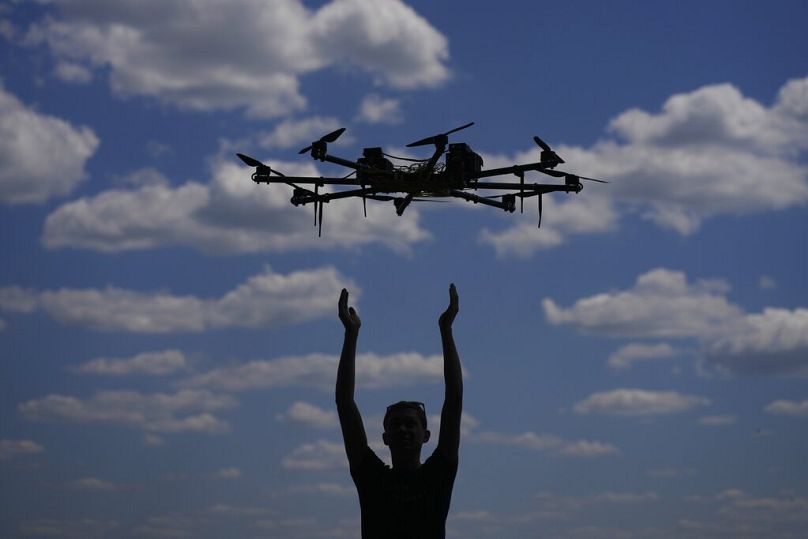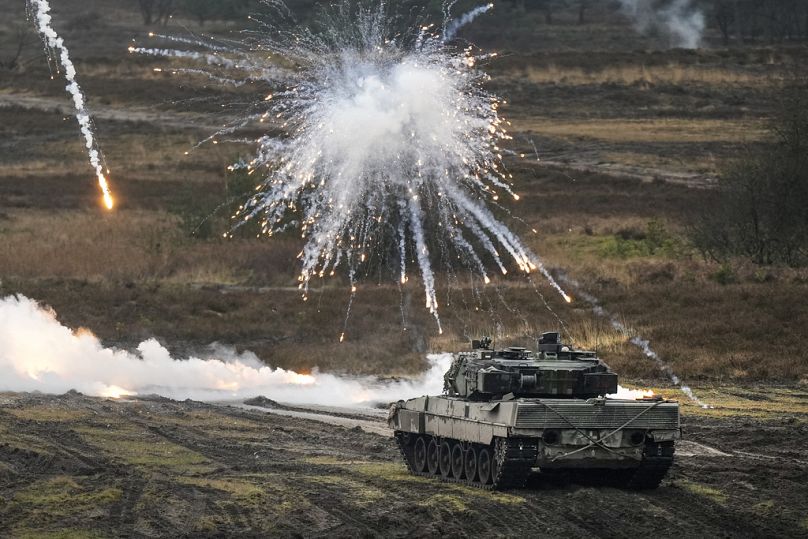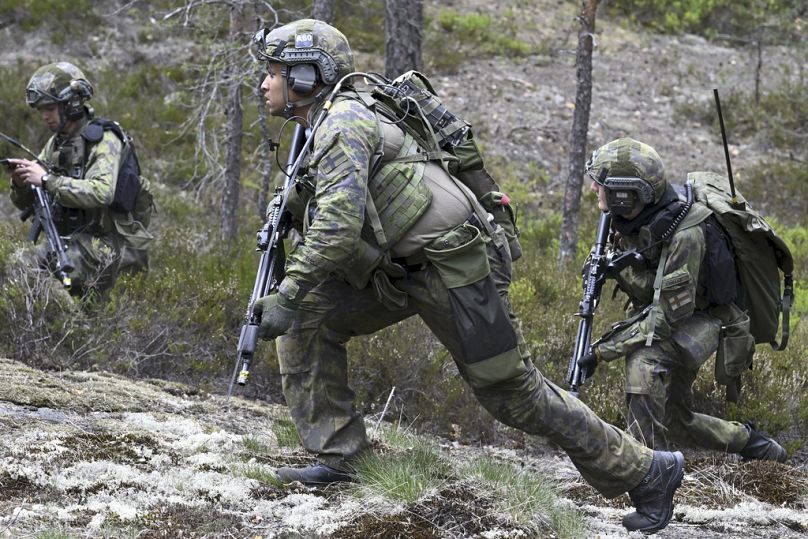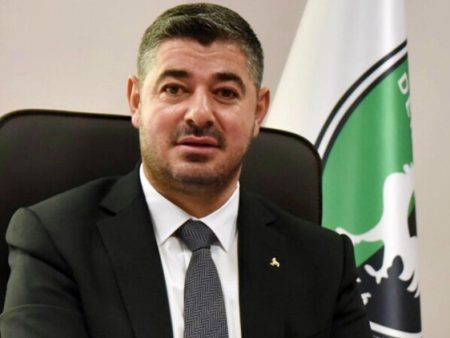Does compulsory military service mean sending poorly trained, disgruntled young people into battle, or can it encourage civic duty and keep Europe safe?
Conscription is seeing a revival across Europe. Is that a good thing?
Russia’s invasion of Ukraine in 2022 shocked Europe into taking a long hard look at its defences.
With peace in the region no longer a given, many Western capitals began asking if conscription was a solution to their security fears, at times igniting firey debate.
German and British politicians have suggested reviving compulsory military service, while countries already with conscription, such as Denmark and Lithuania, want to extend their drafts.
But is conscription the right approach to Russian aggression? What impacts could its revival have on Europe? Will it prove counterproductive or help defend the region?
“Europe’s armed forces, particularly those on the border with Russia, now realise they don’t have enough manpower,” said Vincenzo Bove, professor of political science at Warwick University, who specialises in conscription. “They clearly see conscription as a solution to that.”
“Whether this is a good idea in terms of deterring a potential Russian invasion, we’re not really sure,” he continued, suggesting there was a lack of evidence about the effectiveness of conscript armies compared to regular forces.
Owing to the complexity of modern warfare, Bove questioned if conscripts could be properly trained to use the advanced equipment or tactics employed today, given the short time available.

“Just look at what is happening now in Russia with conscripts… They’re not highly motivated. Young men are being forced to work and the majority of them would rather be doing something else”.
A former Wagner mercenary in July told Euronews that while he served on the frontline in Ukraine one of his main duties was to ensure Russian conscripts – “barely 21-years-old” – would not run away, due to their sheer lack of will to fight.
Canon fodder?
Besides economic concerns about the inefficiency of compulsory military service – with massive numbers of people prevented from doing something where they could be more productive – Bove raised ethical concerns about sending civilians into battle with little experience.
Having served in the Italian Navy for 15 years, he said: “Three years isn’t enough to teach the basics of warfare… even using basic weapons requires a lot of training.”
“Some countries are talking about three-month programmes… that’s nothing. They won’t even learn how to salute,” Bove adds in jest.
Tucked on Russia’s border via the small enclave of Kaliningrad, Lithuania recently began drafting reforms to its conscription system, where people living and studying abroad could now be called up for service.
One option in the proposals is to enlist recruits voluntarily for one-month training sessions every summer for three years. they would in theory then be ready for battle.
Along with Lithuania, Denmark, Sweden, Norway, Finland, Latvia, Austria, Greece and Estonia currently have some form of compulsory military service, alongside warring parties Ukraine and Russia.

Still, others were supportive of compulsory military service – with caveats.
Critical of “performative acts” where “every man and woman is herded into military service”, Elisabeth Braw at the American Enterprise Institute told Euronews selective models of conscription can “work really well”.
The defence analyst pointed to the “incredibly successful” example of Norway, where people are called up en masse, but only between 30 and 50% are chosen for military service and trained for 19 months.
“The army gets the best and the brightest, and on top of that service is an asset on a conscript’s CV,” she explained, with passing the selection process a mark of prestige inside the country.
In 2015, Norway became the first NATO member and the first European country to introduce compulsory military service for both men and women. It still retains a professional military, providing the bedrock of its defence.
Braw offered a note of caution about compulsory military service, however.
“Troops must be equipped with meaningful, useful skills. It has to be time well spent,” she said. “The Kremlin isn’t going to be frightened by a conscript model that’s not thought through, with young men and women sitting idle in barracks.”
Enlisted civilians could be trained and put to use, beyond strictly defence, Braw continued.
“Keeping a country safe is about more than the armed forces. It’s diverse. It’s about public health, infrastructure protection, and healthcare. Young people can be called up when they are needed to help protect the country from crises or disasters that could occur.”
“There are so many societal problems that the government alone cannot solve.”
France in 2019 launched what was widely seen as soft conscription, with young people able to do voluntary civic service. Macron billed his pet project as a way of developing patriotism and social cohesion, though opponents say it diverted money needed for the wider education system.
Studies show conscripts could be more likely to face unemployment when their service finishes, while there are questions about whether skills are transferable to other sectors or learned at all.
Does military service breed patriotism?
One reason Europe is resorting to conscription – where men and women are typically legally obliged to fight – is that conventional recruitment drives aren’t working.
The German army, for example, is failing to recruit enough soldiers, despite a vast initiative to strengthen the country’s defence force spurred by the Ukraine war, the country’s Ministry of Defence announced in August.
Why exactly people don’t want to fight is unclear.
One argument put forward by experts is that militaries cannot compete with private sector wages and conditions, with army jobs often difficult and dangerous.
Yet, Bove says this economic argument does not explain well what is happening in areas of Europe with high unemployment, such as southern Italy or Spain. Here people still don’t want to join up.
Another reason is cultural, namely that civilians are unwilling to serve because they don’t necessarily share the “overarching goals and purposes of the army,” he tells Euronews.
Devastating wars in Afghanistan and Iraq have left “long-lasting” negative attitudes towards the armed forces, with Bove doubting that throwing cash at the problem could improve recruitment or ever increase the appeal of conscription.
But there are arguments that conscription can increase patriotism and boost support for defence against an aggressor, like Russia.
“Conscript service has a long history in Finland and has broad support in society,” said Elina Riutta, Chairperson of the Finnish Conscripts Union, in a statement sent to Euronews.

“The Russian threat has always been known in Finland, so the war in Ukraine does not in itself change things regarding conscript service, but rather emphasises the purposefulness of the service.”
“The will to defend the country among conscripts and the entire nation is currently at a record high,” she added.
Finland is in a unique position geographically, sharing a long border with Russia, and has a long history of military conscription. Its example is not necessarily applicable to other countries.
Research by Bove and his colleagues Riccardo Di Leo and Marco Giani found that conscription actually created a gap between people and their government.
“Conscription makes people identify with the armed forces, but his loyalty clashes with that towards other democratic institutions, causing people to trust the authorities less.”
“If you’re worried about the increasing distance between younger generations and the state, then conscription is not the answer. It’s actually counterproductive,” he added.







